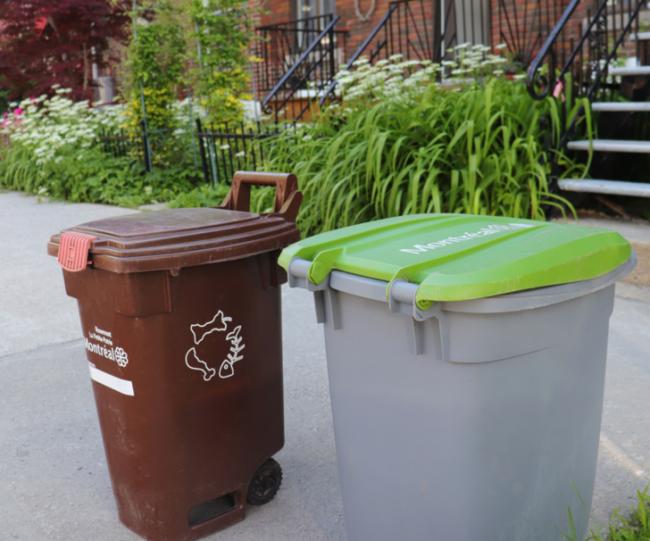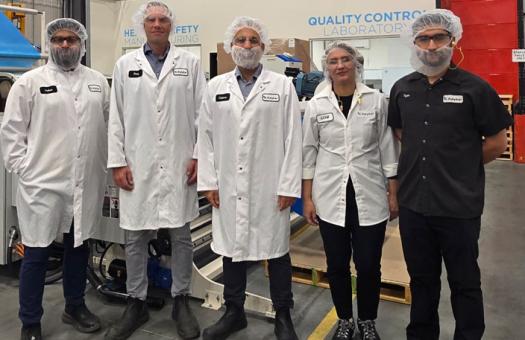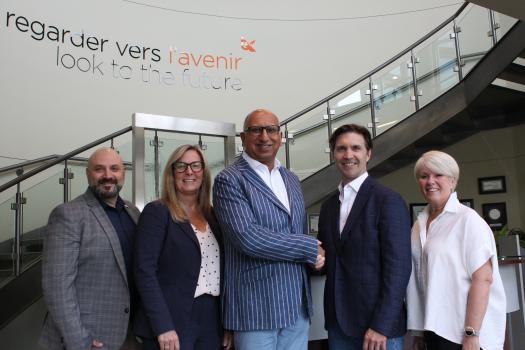17/07/2025
Recyclable vs. Compostable: What's the Real Difference?

Choosing recyclable or compostable products feels like the right thing to do, but good intentions aren’t enough. If we don’t
sort these materials correctly, we risk doing more harm than good. A compostable cup in the recycling bin? That can ruin an entire batch. Understanding how each option works can help us make smarter and more responsible choices.
What They’re Made Of
The distinction between compostable and recyclable products often begins with their composition. Compostable materials are typically derived from organic, plant-based sources. These include food scraps, yard waste, uncoated paper, and certified compostable bioplastics made from renewable resources like cornstarch, sugarcane, or potato starch. The defining feature of these materials is that, under the right conditions (such as in an industrial composting facility), they can fully break down into carbon dioxide, water, and nutrient-rich compost, leaving no toxic residue.
Recyclable items, in contrast, are usually made from more durable, non-organic materials like aluminum, paper, glass, and specific types of plastic such as PET and HDPE. These materials do not naturally break down but are designed to be processed, reshaped, and reused, giving them a second or third life as new products. However, whether an item is recyclable depends heavily on local recycling programs, their technology and infrastructure, and whether the material is clean and correctly sorted.
Where They Should Go
Compostable items such as food scraps, yard waste, uncoated paper, and certified compostable packaging like cutlery, cups, and certain pouches should be placed in organic waste bins (often brown or green, depending on your municipality) or sent to a commercial composting facility. Unfortunately, many of these items are tossed in the trash or even the recycling bin by mistake, where they can do more harm than good.
Recyclables should be placed in designated recycling bins, ideally rinsed and free from food residue. Items contaminated with food or mixed with non-recyclables can spoil entire batches of recyclables, causing them to be landfilled or incinerated instead. Local recycling programs vary widely, so it is important to understand what your community accepts.
How They Break Down
Tossing a compostable fork into the woods or leaving a cup in a park won’t help. It won’t decompose properly, and it will pollute the environment. Without the right setup like in a landfill or a backyard compost pile that’s too cold, these materials can break down incompletely or release harmful gases like methane.
Compostable products decompose through natural biological processes, but only if the conditions are right. They need heat, moisture, oxygen, and the presence of microorganisms to fully break down.
Recyclables break down in a completely different way. Instead of biodegrading, they are physically or chemically transformed. Plastics are melted and remolded, paper is pulped and reprocessed, and metals are melted down for reuse. These processes do not rely on nature but instead depend on technology, infrastructure, and consumer participation to be effective.
What Happens When They’re Disposed of Incorrectly
Compostables don’t magically disappear in landfills. Without oxygen, they break down anaerobically, releasing methane, a greenhouse gas much more potent than CO₂. So, while the material might be “green,” the outcome definitely isn’t unless it’s composted the right way.
Recyclables cause trouble too when tossed in the trash. They can take years or even centuries to break down and take up valuable space. More importantly, throwing recyclables into the trash means missing the opportunity to reuse materials and reduce the demand for new resources.
How They Help the Environment
When compostables are processed correctly, they contribute to a healthy, natural cycle by returning nutrients to the soil. This not only improves soil quality but also reduces reliance on chemical fertilizers. Composting helps divert organic waste from landfills and supports more regenerative forms of agriculture and landscaping.
When compostables are disposed of properly, they give back, turning into rich soil that feeds new life. That means less landfill waste. But only if they end up in the right bin.
Recycling, on the other hand, can keep valuable materials in the economy where it belongs.
More News

Polykar Invests $20 Million to Double its Capacity in Edmonton
Polykar Invests $20 Million to Double its Capacity in Edmonton
Read more
Polykar EDM Recognized Among Canada’s Elite with Top BRCGS Rating
Polykar EDM Recognized Among Canada’s Elite with Top BRCGS Rating
Read more
MontClerc Capital makes a strategic investment in Polykar to accelerate its North American growth
MontClerc Capital makes a strategic investment in Polykar to accelerate its North American growth
Read more